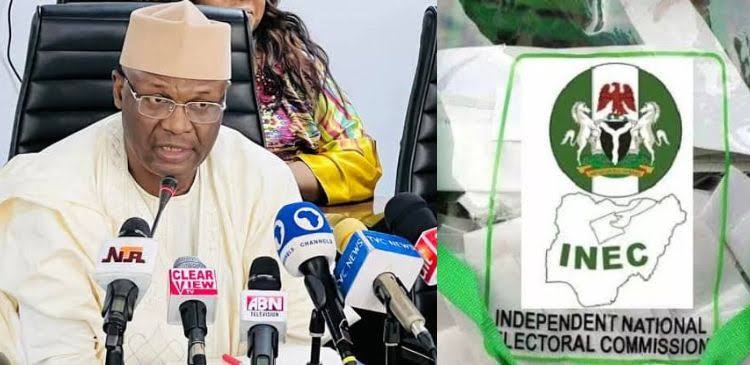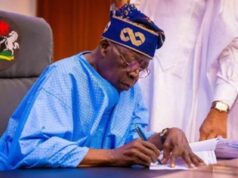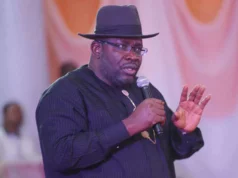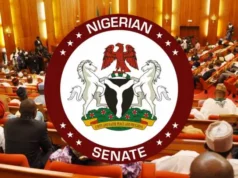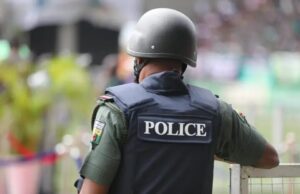The Independent National Electoral Commission (INEC), yesterday, revealed that some key political actors and stakeholders in the country were not comfortable with the Electoral Act 2022 and would prefer a return to the old act.
The commission also warned that the proclivity for hate speech and fake news by the political elite and political parties could constitute a direct threat to the conduct of peaceful elections in Nigeria.
The INEC National Commissioner and Chairman of the Information and Voter Education Committee, Festus Okoye, stated this during an interface with the media and Civil Society Organisations on “Identifying and Mitigating Flashpoints of Electoral Misinformation and Disinformation” organised by the International Press Centre (IPC), in Abuja.
READ ALSO: INEC Timetable, Schedule Of Activities (See Dates For Elections)
Okoye said some of the critical stakeholders in the electoral process had not made the transition from the Electoral Act, of 2010 (as amended) to the Electoral Act, of 2022.
“Some of them are still quoting sections of the law that have either been repealed or amended.
“Furthermore, some of the stakeholders are not comfortable with some of the provisions aimed at strengthening the electoral regime and will prefer a return to the old act.
“The reality is that the Commission must conduct the 2023 general election based on the Electoral Act, 2022. Attacking the Commission based on its resolve to conduct a law-based election will not change its resolve to organise, undertake and supervise elections in Nigeria”, he stated.
Okoye, while insisting on the deployment of Bimodal Voters Accreditation System (BVAS) for the 2023 elections, observed that a regime of misinformation and disinformation has been afoot in relation to the deployment of BVAS for voter accreditation and authentication.
He blamed the surge of misinformation on BVAS on election riggers with double and multiple Permanent Voters Cards, who he said, “are now unable to use them.”
“Some of them are claiming that the BVAS uses network and there is no network in their localities. The reality is that BVAS works offline and does not require network for voter verification and authentication.
“The BVAS has come to stay and shall be used and deployed for the conduct of the 2023 general election. Section 47(2) of the Electoral Act makes the use of the BVAS for voter authentication and verification mandatory and the Commission is not vested with the discretionary authority to use or not to use the device,” Okoye said
Speaking on the voter register, the INEC commissioner stated that at end of the Continuous Voter Registration, CVR, exercise the completed registrations stood at 12, 298, 944.
According to him, valid registrations stood at 9,518,188 while invalid registrations stood at 2,780,756.
The Commission decided to integrate the existing voters register that had over 84 million registered voters with the CVR figure and displayed the provisional register containing 93, 522, 272.
Okoye disclosed that the commission used its Automated Biometric identification System to weed out the double and multi-pole registrants and used manual adjudication to remove some malicious registrations
He, however, said impression had been given that the Commission disenfranchised the multiple and double registrants.
“Those engaged in ethnic and religious narratives went ahead to cluster the double and multiple registrants into regions and zones to arrive at a predetermined conclusion. The commission will continue to clean up the register to remove visibly under aged registrants”, he stated.
Noting that the commission had learned valuable lessons from the conduct of the 2019 general election and these lessons have assisted and continue to assist the Commission in organising the 2023 general election, Okoye said INEC is worried that politicians, now realising that every vote counts, go to the polling units with bags of money to induce voters.
According to him, some of the politicians buy the votes before the commencement of elections while others employ a variety of tactics that are both manual and digital in vote buying.
This, according to him, is a sad development, which portrays our country in very bad light.
He added: “The Commission has made it clear that open votes buying will not be tolerated on Election Day. Our democracy should not be for sale in the open market and votes are not commodities to be bargained, bought, and sold. It is the fundamental right of every voter to vote in secret for the candidate of his or her choice without let or hindrance.
“As we approach the 2023 general election, INEC will continue to implement policies and collaborate with law enforcement and financial regulatory agencies to check vote buying. However, the Commission is not vested with the power to go from house to house in search of vote buyers and sellers.
“As we continue to prepare for the 2023 general election, the Commission will rely on the support of all stakeholders and friends of Nigeria to overcome the identified challenges.
“Resort to misinformation and disinformation will not help in the growth and sustenance of the electoral and democratic process. All the critical stakeholders must rise and fight the spectre of misinformation and disinformation.
“It is important to verify information before sharing. The Commission believes that the antidote to fake news is greater openness and transparency. While the Commission remain true to its commitment to openness and transparency, the media and all the critical stakeholders must resist deliberate falsehood aimed at delegitimizing the Commission and the electoral process.”

